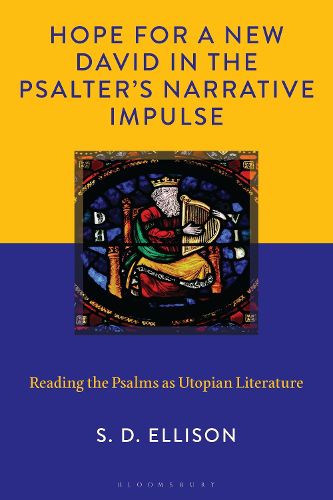Readings Newsletter
Become a Readings Member to make your shopping experience even easier.
Sign in or sign up for free!
You’re not far away from qualifying for FREE standard shipping within Australia
You’ve qualified for FREE standard shipping within Australia
The cart is loading…






This work argues the message of the Psalter is one of hope-utopian hope to be exact.
Despite increasing scholarly consensus that the Psalter is a carefully organized collection, there remains debate concerning the message of such a collection. S. D. Ellison outlines a narrative impulse that sustains expectations of a better future by assuring readers that one day Zion will be glorified, enemies vanquished, and the Davidic dynasty embodied in a new Davidic king. This argument advances that of Gerald H. Wilson and refines that of David C. Mitchell. Ellison advocates a reading which defends the claim that the Psalter encourages its reader to hope for a new Davidic king. It clarifies that this king will usher in a kingdom of peace by vanquishing all enemies and so rule from a transformed Zion. The utopian hope of the Psalter's narrative impulse is not a return to what once was, but an encouragement to remain confident that YHWH will realize all his promises in a new era of blessing following the exile. Reading the Psalms as utopian literature sustains hope for a new David in the Psalter's narrative impulse.
$9.00 standard shipping within Australia
FREE standard shipping within Australia for orders over $100.00
Express & International shipping calculated at checkout
Stock availability can be subject to change without notice. We recommend calling the shop or contacting our online team to check availability of low stock items. Please see our Shopping Online page for more details.
This work argues the message of the Psalter is one of hope-utopian hope to be exact.
Despite increasing scholarly consensus that the Psalter is a carefully organized collection, there remains debate concerning the message of such a collection. S. D. Ellison outlines a narrative impulse that sustains expectations of a better future by assuring readers that one day Zion will be glorified, enemies vanquished, and the Davidic dynasty embodied in a new Davidic king. This argument advances that of Gerald H. Wilson and refines that of David C. Mitchell. Ellison advocates a reading which defends the claim that the Psalter encourages its reader to hope for a new Davidic king. It clarifies that this king will usher in a kingdom of peace by vanquishing all enemies and so rule from a transformed Zion. The utopian hope of the Psalter's narrative impulse is not a return to what once was, but an encouragement to remain confident that YHWH will realize all his promises in a new era of blessing following the exile. Reading the Psalms as utopian literature sustains hope for a new David in the Psalter's narrative impulse.